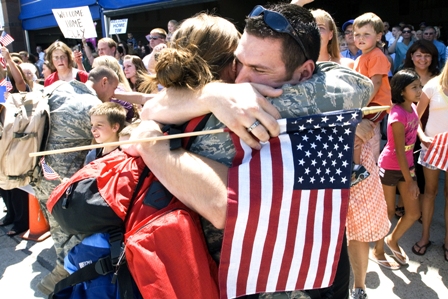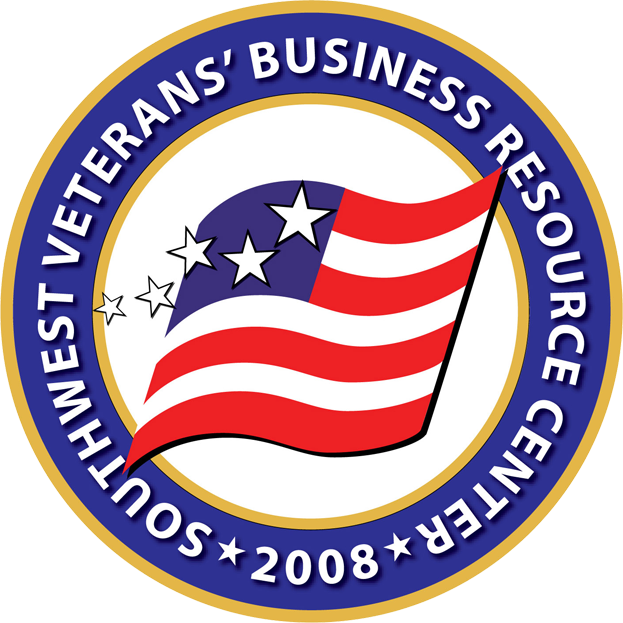By Christian Davenport
Washington Post Staff Writer
Sunday, February 28, 2010;
E01
Time magazine called "The Hurt Locker" "a near-perfect war film," but Ryan
Gallucci, an Iraq war veteran, had to turn the movie off three times, he
says, "or else I would have thrown my remote through the television."
Critics adore the film and it has been nominated for nine Oscars -- a
feat matched only by "Avatar," the top-grossing movie of all time -- but Paul
Rieckhoff, founder of Iraq and
Afghanistan Veterans of America, says that's "nine more Oscar
nominations than it deserves. I don't know why critics love this silly,
inaccurate film so much," he wrote on his Facebook page.
Many in the military say "Hurt Locker" is plagued by unforgivable
inaccuracies that make the most critically acclaimed Iraq war film to
date more a Hollywood fantasy than the searingly realistic rendition
that civilians take it for.
To which you might say: It's just a movie and an action flick at that.
It's Tinseltown fiction -- an interpretation of war such as "Full Metal
Jacket" or "Apocalypse Now." It's supposed to entertain. It's not a
documentary, not real life.
But to those who were there, Iraq is real life. And they're very
sensitive -- some would say overly so -- when their war is portrayed via
a central character who is a reckless rogue.
Hence a rising backlash from people in uniform, such as this response on
Rieckhoff's Facebook page from a self-identified Army Airborne Ranger:
"[I]f this movie was based on a war that never existed, I would have
nothing to comment about. This movie is not based on a true story, but
on a true war, a war in which I have seen my friends killed, a war in
which I witnessed my ranger buddy get both his legs blown off. So for
Hollywood to glorify this crap is a huge slap in the face to every
soldier who's been on the front line."
Even Brian Williams, the NBC News anchor, took a shot on his blog, writing a post titled, "The Hurt Locker: Hurting for a
fact-checker." The movie's positive reviews could not have been "written
by anyone who had spent any time with U.S. armed forces in Iraq," he
wrote, wondering why none of the soldiers in the movie dipped smokeless
tobacco or said "hoo-ah" -- "the universal term for hello, goodbye,
understood, etc."
'Reckless' character
In an interview, Rieckhoff said the anger about "Hurt Locker" stems not
so much from such small inaccuracies -- for example, the uniforms the
soldiers wear in the film weren't available until well after the time
the story took place -- but rather from the depiction of the main
character, Sgt. 1st Class William James.
Portrayed by Jeremy Renner, who's nominated for Best Actor, James is a
daredevil who in one scene takes off his protective armor while
disarming a bomb because, as he says, "If I'm going to die, I'm going to
be comfortable." He runs alone through the streets of Baghdad with his
sweat shirt hood up like a gangster. Later, he takes two soldiers
hunting for insurgents in Baghdad's back alleys without any backup.
James's fellow soldiers are, or try to be, by-the-book professionals.
They call James "rowdy" and "reckless," and one worries out loud that
his leader's crazy antics are "going to get me killed." James is as much
cowboy as soldier, and vets fear he could become an iconic figure in
the American imagination should the movie win a bunch of statues.
"Films, almost more than anything, will be the way Americans understand
our war," Rieckhoff said. "So we feel that there is a responsibility for
filmmakers to portray our war accurately. We see ourselves as
watchdogs. . . . When he puts a hood on like Eminem and starts roving
outside the wire, it's ridiculous."
Gallucci, a former sergeant who served in Iraq from 2003 to 2004, says
he kept hoping James would get "blown up throughout the entire movie. I
wanted to see his poor teammates get another team leader, who was
actually concerned about their safety."
'Dramatic effect'
Mark Boal, the film's screenwriter, knows the soldiers in the film are
wearing the wrong uniform. He was embedded in Iraq with an Explosive
Ordnance Disposal team in 2004, and he's aware of what soldiers wore.
Boal has worked as a journalist -- an article he wrote for Playboy
became the basis for the 2007 film "In the Valley of Elah," about an Iraq war veteran who is
murdered upon returning home -- and he feels a duty to hew as close to
possible to the truth.
But "The Hurt Locker" is a movie, not a magazine article, Boal says, and
screenwriters need ample artistic license to build a compelling -- and
true -- story. So when he chose to have the film's soldiers wear the
current Army uniform rather than the one they wore in 2004, it's to
allow his audience "to relate to the imagery they saw on the news."
Yes, he had military consultants help him get details of radio protocol
and uniforms right, but he never felt obliged to be precisely accurate.
The consultants, Boal says, give a writer the information he needs so
that "when you do choose to make a dramatic effect, [you] do it in a way
that is not totally embarrassing."
The arc of the narrative, he says, has to come from the writer. "The
story came out of my imagination based on my life experience and
hundreds of conversations I've had with soldiers.
"I definitely tried for dramatic effect to make artistic choices, but I
hope I made them respectfully and carefully and with the goal of not
making a training video or a documentary, but showing just how hellish
this war is. I was also aware, by the way, that there are many wonderful
documentaries on Iraq and many wonderful articles, which no one has
seen. And quite frankly, I was hoping that people would see the film."
Art vs. reality
Each writer's search for truth lands at a different point on the
spectrum between art and reality. When screenwriter David Simon made the
series "Generation Kill" for HBO, he considered it more important
to have Marines find his work an accurate portrayal of their culture
and experience invading Iraq than to win critical acclaim. "The real fun
isn't trying to convince the average viewer" that we have it right, he told the Marine Corps Times. "It's trying to convince
people who have been in the game."
Boal not only wanted to tell a riveting and important story, but also to
raise awareness about soldiers who disarm bombs, a specialty known as
explosive ordnance disposal, which he believed the general public knew
little about, even though hidden bombs are the leading cause of
casualties in Iraq.
As a result, despite some complaints about inaccuracies, many veterans
of bomb disposal units love the movie, says James O'Neil, executive
director of the EOD
Memorial Foundation, a nonprofit that has benefited financially from
the film.
"While there is some artistic license," O'Neil says, "there's a lot of
good representation of the intensity and the courage that's displayed by
EOD techs. What it takes to find, identify and then render safe those
[bombs] -- that's a story, and it's an incredible story."
Filmmakers always worry that productions that servicemembers see as
spot-on might leave general audiences cold. So: Is it really important
that a war movie be accurate?
No, says David McKenna, a film professor at Columbia University. "Hurt
Locker," he argues, isn't as much about Iraq as it is about one
soldier's addiction to war. It's a character study, an exploration of
courage, bravado and leadership told through "a series of suspenseful
situations. I suppose it could have just as easily been set in outer
space."
If veterans don't like it, McKenna says, "well, this is an opportunity
to go make your own movie."
 A welcoming home for our Troops.
A welcoming home for our Troops.

